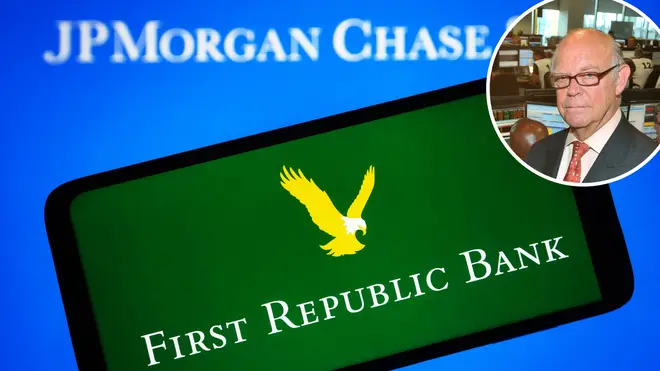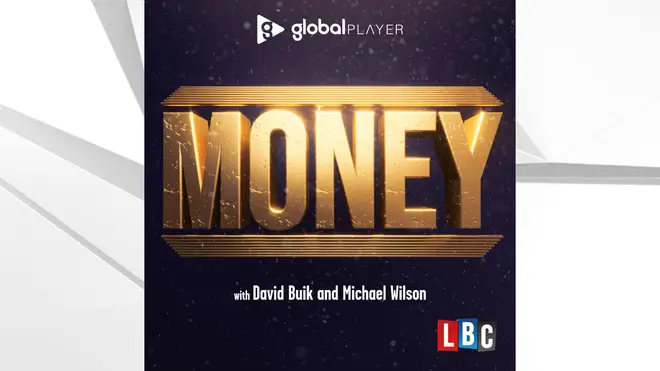
Ben Kentish 7am - 10am
3 May 2023, 09:45

Last week was a massive earnings week in the US. However, investors’ response to it until Thursday was relatively muted.
Why? There were still cumuli nimbus storm clouds of concern hovering over the health of the US banking sector, in the wake of the failure of SVB and Signature Bank, as well as the odd European lame duck.
Fortunately, the remaining bank results in the US and the likes of UBS, Deutsche Bank, BNP Paribas, UniCredit and Santander were sufficiently satisfactory to calm investors’ frayed nerves. Consequently, the great progress reported last week on earnings from Meta, Amazon, Microsoft, and Alphabet was sufficient for Wall Street’s main indices to acknowledge the respect they deserved, allowing them to select another gear.
Unsurprisingly, the Dow Jones Industrial Average, the S&P 500 and the NASDAQ closed the week up 0.87%, 0.91% and 1.44% respectively.
These gains don’t sound meteoric but considering the downbeat mood in early part of the week, it was a satisfactory outcome.
However, the financial community still feared the worse from rumours that Federal Republic Bank of California - no ‘Micky Mouse’ operation with 82 branches - was hemorrhaging deposits, despite receiving a $30 billion lifeline eight days ago!
Investors and regulators’ fears were not unfounded. Over last weekend, the fate of this large regional bank, which had lost $104 billion of deposits was sold to JP Morgan Chase for $10.6 billion. This deal was brokered by the Federal Deposit Insurance Corporation, which will be taking a $13 billion hit itself.
The deal will protect all depositors and includes the purchase of $229 billion of assets. JPM Morgan’s CEO Jamie Dimon does not think contagion will be an issue, despite this bank failure being the second largest in US banking history – Washington Mutual, also baled out by JP Morgan, being the largest in 2008.
This failure is a combination of injudicious property lending and the adverse effect of rising interest rates on bond assets.
I think it is reasonable to assume that this banking setback is not as acute or worrying as the 2008/9 full-blown credit crisis.
However, according to Blondemoney’s Helen Thomas, flagged up in this week’s ‘Money Podcast’, observers should not be frivolous in assessing the damage that has been inflicted or could be in the months to come.
Why have these problems occurred? Firstly, the FDIC was warned a month before SVB Banking’s problems were dealt with. That was sloppy regulation.
Then there were two major incidents which the market underestimated the damage they could cause.
The $5.5 billion loss Credit Suisse made backing Archegos Capital, the fund manager, was irresponsible.
This was followed by ETX, the cryptocurrency operator, who allegedly lost $8 billion fraudulently.
These issues make for quite a toxic cocktail; more than capable of rattling investor confidence. It will not have escaped investors’ attention that yesterday, shares in other regional banks such as PacWest Bancorp, Western Alliance and Metropolitan Bank fell by 28%, 15% and 20% respectively.
David Buik & Michael Wilson, two of the most respected commentators in the world of Money and Business come together for a weekly Global Player original podcast – Money!

Markets, early on yesterday took Jamie Dimon at his word. Equity markets seemed becalmed, but they did not hold! Investors could not shake off their fear of further banking fallouts.
When coupled with the content of today’s FOMC meeting, that combination created a mist of negative uncertainty, resulting in New York adopting a risk-averse attitude, which Europe was happy to reflect.
With social media conducting the frenetic transfer of deposits from banks not considered vogue, large banks will inevitably increase their domination of the banking sector, thus cutting healthy competition, as well as curbing lending – discouraging to say the least!

Yesterday HSBC posted very positive numbers. First quarter profits before tax came in at $12.9bn up from $8.7 billion on income of $34 billion with a dividend of 10 cents. CET was good at 14.7%.
Acceptable impairment costs of $400m were posted. There is to be a $2 billion share buyback. 75% of HSBC’s profits emanate from Asia. Return on equity was impressive.
Noel Quinn, the CEO said he was excited by the purchase of SVB UK, which will offer great prospects for earnings in the tech field. Despite these excellent results there continues be growing pressure to split the bank into Asia and the rest of the world, especially as Ping An, the Chinese insurance mogul remains a substantial shareholder, owning 9% of HSBC!
Since 2007, the UK bank sector has proved to be a poor investment. The 2008/9 banking crisis, with RBS and Lloyds Banking Group being bailed out for £75 billion left them on the back foot.
Regulators quite rightly insisted on banks needing greater capital do execute the same level of business.
With virtually zero interest rates during this period, this has made making profits very tough, exacerbated by huge losses being written off, let alone large repayments being made to taxpayers for their support.
UK banks posted decent results last week, with Barclays first up with a £1.8 billion pre-tax profit. Tier One Capital came in at a very respectable 13.6%. Impairment provisions of £500 million were understandable in the current economic climate.
CEO Venkatakrishnan has bravely fought cancer and on top of controversial issues with US regulator over for exceeding a U.S. limit on sales and the unorthodox departure of its previous CEO Jes Staley, Barclays has had challenging issues to deal with.
NatWest under Dame Alison Rose also posted upbeat profits of £1.8 billion. However, market observers felt impairment provisions of just £70 million were unrealistic, resulting in its shares easing by over 4% last Friday.
Standard Chartered Bank, which like HSBC, earns most of its revenue in Asia, posted a 21% increase in pre-tax profits profit of $1.81 billion.
This morning it was the turn of Lloyds Banking’s Charlie Nunn to present his credentials. A robust net profit of £1.64 billion was posted, with impairment provisions of £200 million being made. That figure may alter later in the year in response to economic activity.
The Bank of England and Sam Woods as CEO of Prudential Regulation have been seen to regulate UK banks with more than just a watchful eye.
Stress tests are regular occurrences and exacting. Many would be surprised to see a banking crisis in the UK barring an act of God!
Also, many economists are of the view that global interest rate hikes should cease for now to prevent any further damage to this sector.